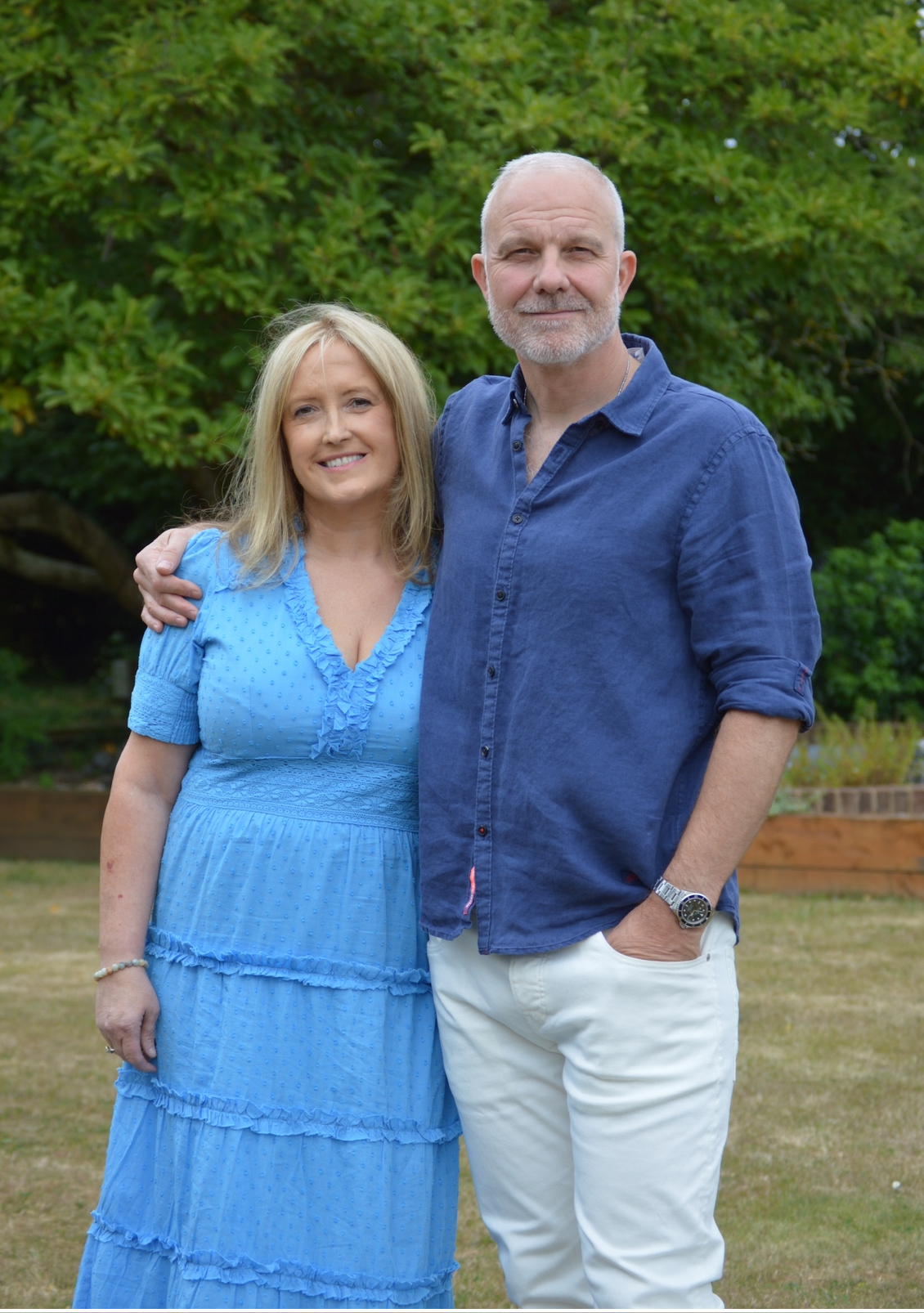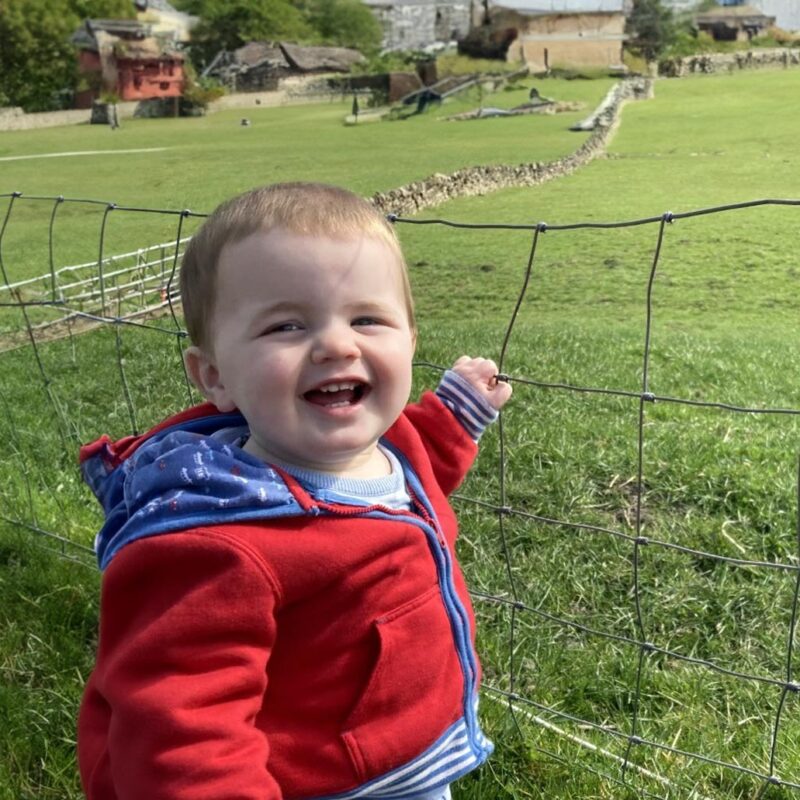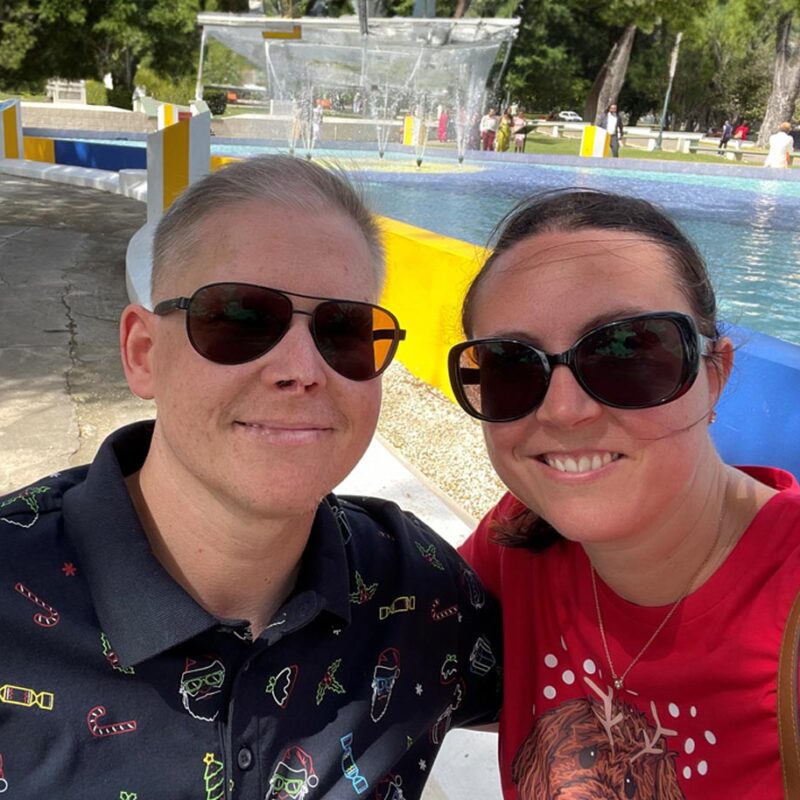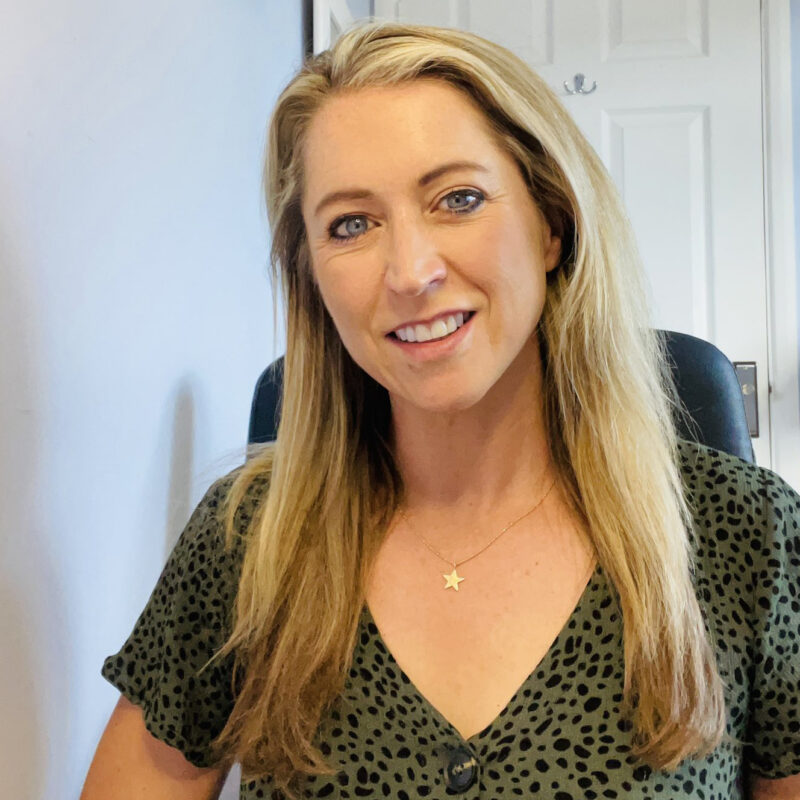Katie developed sepsis after getting the shivers in 2017 – she went from being a fitness instructor to not being strong enough to push her glasses up her nose.
After being in an induced coma for three weeks, she miraculously survived and feels “so lucky”. She now wants to share her experience to raise awareness about the symptoms of sepsis.
In May 2017, Katie, a mum of three, was a fitness instructor, but suddenly started getting the shivers – little did she know, this was her first warning sign of sepsis.
She soon went to her GP, who said she did not have a temperature, but told her to “go home and drink some Lucozade”.
So, Katie “just got on with it” and managed to work through the week, but was having to go to bed between the classes she taught and take “loads of paracetamol”.
She said:
“I didn’t feel great at all but I had been reassured by the GP.”
A few days later, Katie went to the bathroom in the middle of the night, and next thing she knew, she woke up on the bathroom floor.
“I don’t remember how that happened, I don’t remember anything…I managed to call my husband…he obviously called an ambulance,” Katie explained. “But we weren’t in distress, I was in and out of consciousness.”
From that point onwards, it was a blur – Katie remembers having her blood pressure taken by a paramedic, who said it was 40/20, which is extremely low.
She also recalls being taken out of the ambulance, and the paramedic pushing down on her stomach, and she screamed in pain.
Katie added:
“I remember someone stroking my head and saying ‘Don’t worry Katie’.”
At the time, Katie and her husband were not particularly worried about her symptoms – they knew she was not very well, but did not suspect it to be anything serious.
However, when her husband arrived to the hospital, “quite relaxed”, he was told that Katie had severe sepsis, was experiencing multi-organ failure and that there was a high chance that she could die that day.
Doctors later found out that her sepsis orignated from pneumonia.
“It was a big shock for him,” Katie said.
“At this point I didn’t know anything was happening, but I now know that I just was so lucky that I got up, that I woke up (that morning), because if I hadn’t woken up, I would have died in the bed.”
Katie added:
“My husband had to say to the kids “mum is going to die””
and my parents had to come up and see me like that.
“My sister has always said coming up and seeing you was the worst day of my life.”
Katie was then put into an induced coma and was hooked up to an Extra Corporeal Membrane Oxygenation (ECMO) machine – a machine that provides prolonged cardiac and respiratory support to people whose heart and lungs are unable to provide an adequate amount of oxygen, gas exchange or blood supply to sustain life.
Katie was “not expected to live” and her entire body was swollen – her husband, Simon, has since told her that her stomach looked bigger than when she was nine months pregnant, and her hands looked like they were covered in golf balls due to swelling. She was also yellow because her liver was failing, and had haemorrhages, blood clots and vascular issues.
After around three weeks, she was “incredibly lucky” and came out of the coma – her body began responding to the treatments and antibiotics.
She said: “Going through the process of coming out of a coma is (a) very very odd experience with very vivid, completely mad, dreams, but not really knowing that you’re there… I couldn’t speak and I couldn’t communicate at all, and my dad was there the first morning.
“I remember my dad came in and I couldn’t speak… no one really said this is what’s happened to you.”
Katie remained in intensive care for around five weeks, she could barely move, and had severe critical illness myopathy – weakness involving the muscles of the extremities, trunk, and respiration. Katie lost all strength to the point where she could not even push her glasses up the bridge of her nose, which she found particularly “difficult” as she had always been an active person.
She was then moved to her local hospital for rehabilitation, where she had to relearn how to stand and walk.
Since arriving home “life has never been the same” – Katie spent around four years in bed and at one point, even lost 60% of her hair.
Katie has since recovered from pneumonia and sepsis but has ongoing kidney issues and cognitive issues.
Her entire family have been incredibly supportive over the years, and Katie is especially thankful for her husband, who has helped look after her.
She said: “I have to say, he’s been my rock, and he’s been calm when things around haven’t been calm… I’ll never be able to express to him how grateful I am.”
Looking back on her experience, Katie thinks she now appreciates life more. She said:
“I feel so grateful to be alive, I feel so lucky.”
She is propelled by her experience to raise awareness of sepsis to prevent others from going through the same ordeal as her family.
Katie and her husband recently sponsored their daughter’s university hockey team at Swansea University, for a big varsity match against Cardiff, so the team’s kit featured UKST’s logo. Katie said: “Most 18 to 24 year olds wouldn’t even cross their radar of life thinking that sepsis could possibly happen to them, and I think obviously it does to a lot of people that age… so we were really pleased to be able to sponsor the shirts and then and even better they beat Cardiff!”

We’re enormously grateful to Katie’s family for their support, and would urge everyone to take a moment to familiarise themselves with the signs of sepsis.





